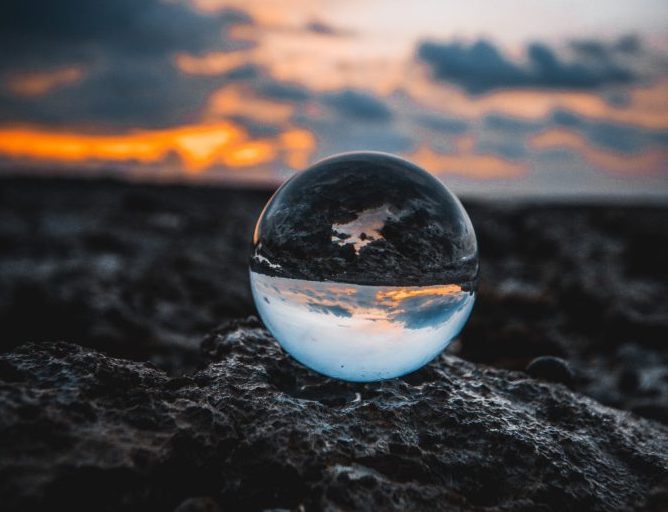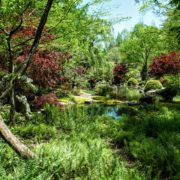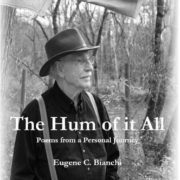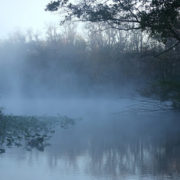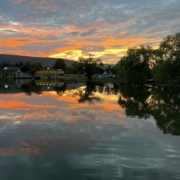An ecology of the spirit
Hello friends. Humanity exists as part of an ecosystem, a web of life. In An Ecology of the Spirit (1994) I wrote that eco-spirituality is a harmony that encompasses the sacredness of nature as central to human existence. When we experience life deeply as companions of nature rather than apart from it, we support efforts to encourage a healthy earth. William James, in The Varieties of Religious Experience, realized the central role of nature in man’s spiritual well-being, “to which psychology has given relatively little attention.”
Our own worth cannot be divorced from the natural world. Ecological concerns may seem a luxury when many are struggling in a daily existence. But identifying our daily selves as tied simply to the needs of the ego diminishes our human potential and ignores the Buddha’s injunction to care, feel, and act with compassion for both the animate and inanimate web of which we are part. Best, Gene.
The Irony of Eco-Suicide (2014)
Our ancestors crawled out of pristine oceans
on bigger fins to climb trees, even leap
to the skies as flying dinosaurs
whose cousins became Aristotle, Jesus,
Copernicus, Darwin, and the rest of us,
give or take a few millennia.
Too glib, you say. Well, check the science
which lands us there despite doubters.
Our best seers confirm this cosmic journey:
complexity, convergence, communion,
expanding universe and awareness.
All well and good, but it risks deluding us
unless we think-feel the great miseries,
individual sufferings of our dying ecology.
The grand overviews remain in books,
well-landscaped campuses and conference centers.
Now see these oceans swarming with plastic refuse,
and nylon netting choking dolphins and whales
one by one in intense agony, far from lovely aquariums.
see this rhino and this elephant in death throes
for ivory, and this tiger to grace the wall of a trophy hunter.
Look at global warming through the eyes
of a walrus or polar bear starving without habitat.
Look at the Amazon forest raped for wood
and cattle for meat that harms health, but fills
corporate coffers and kills our kin of many species.
Experience the foul air over Beijing and a thousand cities
as we wear facemasks and feel our eyes burn,
while grandkids on respirators wonder why
we didn’t question the civilization of oil and coal,
or sense the suffering of a dying wolf, or calf boxed for veal.
Such an irony that we who enjoy the gifts
of this long mutual road should cause its demise
with so much agony. Yet a remedy for eco-suicide
could start by holding the afflicted in our arms,
imaginations and hearts. Watch the finch at the feeder,
feel the breath and gaze of our dogs and cats,
and confront this tragedy of our souls.

